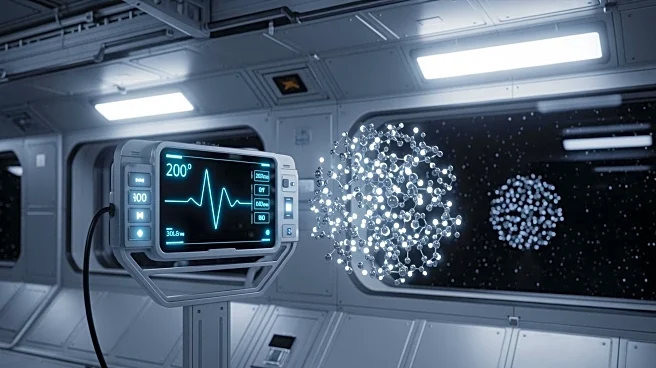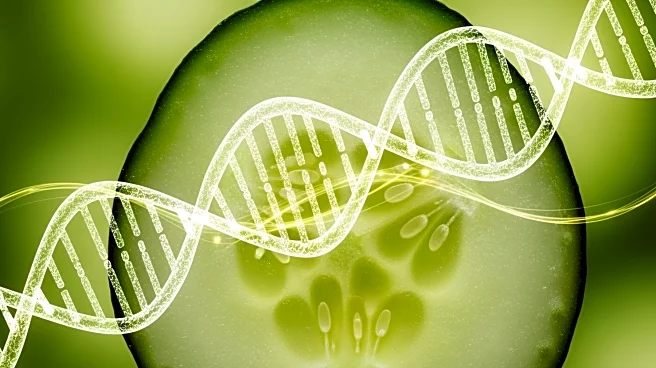What's Happening?
The Expedition 73 crew aboard the International Space Station is actively engaged in a variety of scientific research activities focused on life sciences and physics. NASA Flight Engineer Jonny Kim is conducting cardiovascular health studies using sensor-packed
equipment while exercising. This research aims to track health changes in space and assess portable health monitoring devices. Additionally, Kim is processing stem cell samples to study their conversion in microgravity, which could lead to advanced treatments for heart and neurological diseases. Meanwhile, NASA's Mike Fincke and JAXA's Kimiya Yui are working on physics experiments related to fluid dynamics and fire safety in space. These studies are crucial for understanding material behavior in weightlessness and improving spacecraft safety. Other crew members are involved in spacesuit maintenance and testing new medical imaging devices.
Why It's Important?
The research conducted on the International Space Station has significant implications for both space exploration and Earth-based medical advancements. Understanding cardiovascular health in microgravity can help develop treatments for astronauts, ensuring their well-being during long missions. The stem cell research could lead to personalized therapies for heart and neurological conditions, benefiting patients on Earth. Physics experiments on fluid dynamics and combustion are essential for developing safer spacecraft and enhancing in-space manufacturing techniques. These studies contribute to the broader goal of making space travel safer and more efficient, while also providing insights that can be applied to various industries on Earth.
What's Next?
The ongoing research aboard the International Space Station will continue to provide valuable data that can be used to improve astronaut health and safety. Future missions may incorporate findings from these studies to enhance life support systems and medical protocols. As the space station continues to serve as a platform for scientific discovery, collaborations with international space agencies will likely expand, fostering innovation in space technology and exploration. The results from these experiments may also influence policy decisions regarding space travel and research funding.
Beyond the Headlines
The experiments conducted on the International Space Station highlight the importance of international collaboration in advancing scientific knowledge. The partnership between NASA and JAXA, along with contributions from Roscosmos, underscores the global effort to explore space and improve life on Earth. The ethical considerations of using stem cells in research are also noteworthy, as they raise questions about the future of personalized medicine and the potential for regenerative therapies. These developments could lead to significant shifts in healthcare practices and policies.
















